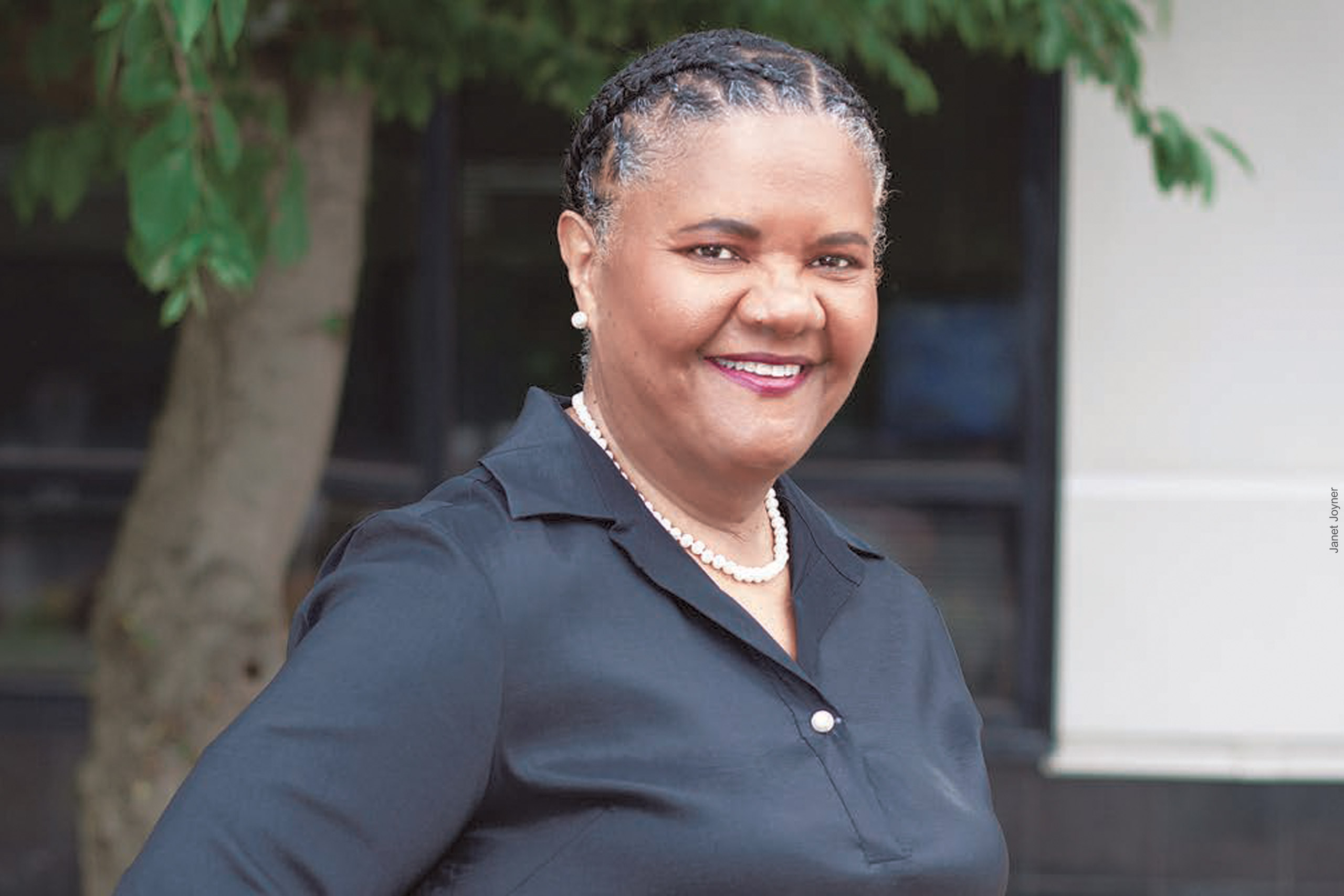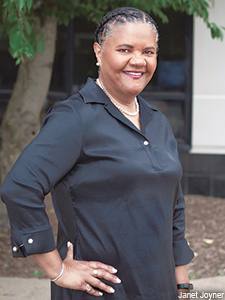
Latest News
Sept./Oct. response: “Is Anything too Wonderful for God?”
Meet the new general secretary and CEO of United Women in Faith.
Listen to “Sept./Oct. response: Is Anything too Wonderful for God” on Spreaker.On her first official day as the new general secretary and CEO of United Women in Faith, Sally Vonner took time to talk with response editors Audrey Stanton-Smith and Maryann Verghese about success, Scripture, faith, and the future.

response: It’s interesting that you have a degree in biology. Could you tell us a little about your career background?
Vonner: This is kind of my second career. I worked in the medical diagnostics field for a very well-known pharmaceutical company, and I worked my way up to management with them. But before that, I started, praise God, with Mary Kay Cosmetics, working at the laboratory, testing the raw materials, and testing the products as they went through the various stages of production. That was my first job out of college, and it was a wonderful experience, working for a woman-owned company. It was a very interesting and wonderful atmosphere. … Eventually, over the course of that journey, I moved on to the pharmaceutical company. I was pregnant with my second child when the company decided to relocate, and I chose not to stay on.
But God was knocking. Vonner, who always had a knack for technical writing, was asked to help write a planning grant for a new church start. She did, and the church was awarded the grant.
And that’s how I got pulled into church work. I always had this spirit of wanting to give back. … And then I started working for the [North Texas Annual] Conference.
Vonner went on to graduate from Perkins School of Theology with an M.Div. and Women’s Studies certification, adding to her B.S. in Biology from Texas A&M. In 2000, the General Board of Global Ministries commissioned her to serve as a U.S. missionary in the North Texas Annual Conference as its Communities of Shalom coordinator. She also served as the Conference’s associate director of Connectional Ministries from 2005-2010.
… And then it was like God said no.
response: God said no?
Vonner: Every time this happened, I learned that it’s because I get comfortable in what I’m doing, and it’s like God says, “No. I’ve got more for you.”
When Vonner’s Conference job was phased out she looked to the United Methodist general agency contacts she had befriended for guidance.
I kind of thought that someday I might be working with one of them, but I thought it would be either Religion and Race or Church and Society, because I was very much into social justice and antiracism work.
Around 2009 Vonner interviewed with Global Ministries and United Methodist Women, where she met then-CEO and General Secretary Harriett Jane Olson. Vonner received job offers from both organizations.
Vonner: … Long story short, the offers came. … So, I immediately got together with spiritual friends.
Vonner and her friends use a form of discernment called a clearness committee. Clearness committees have roots with Quakers and are mentioned in a book Vonner recommends: Openings: A Daybook of Saints, Sages, Psalms, and Prayer Practices by Larry James Peacock.
response: Could you please tell us more about clearness committees?
Vonner: So, I pulled together three spiritual friends, and one agreed to be the facilitator. You have a facilitator and you have a person that has the problem, and they all come forth, and the person with the problem says, “This is what I’m struggling with. I need to get clarity about where God’s leading me.” And all they can do is ask you questions. They can’t say, “Well, I think you need to do this or that,” but they try to help you process what’s already in your heart, what you already know, from the spirit in you to help you bring that forward and so on. Through that experience it became clear. At the end, they said, “Well, you know, … when you talk about the women, your arms are flailing, and you are very animated. When you talk about the other job, you are more subdued. It was okay, but it wasn’t the same level of excitement.”
With help from her clearness committee, Vonner took the job offer from what is now United Women in Faith and, in 2010, was named assistant general secretary of Membership and Leadership Development. (When the organization restructured in 2018, she became United Women in Faith’s transformation officer, coordinating the organization’s visioning and strategic development to positively impact the lives of women, children, and youth.)
response: You have a son named Wesley. Did your connection with The United Methodist Church start early in your life?
Vonner: (Laughing) No. I married into United Methodism, but the church that I grew up in was a smaller denomination, and I kind of struggled with it because I just never felt that I fully belonged. But this was my mom’s church, and it was part of her family’s tradition. So, you just kind of fall in line, you know? And so, it wasn’t until the 1980s when I joined The United Methodist Church that I had the experience of the first woman minister in my life. The Rev. Georgia Allen was very instrumental in helping me see the faith and the traditions in a new light through her leadership. …
Once I connected and found out more about John Wesley and our theology and our tradition, that was like home for me. I [thought], I have found my home and my safety in this community.
response: Do you think coming from a different church background helps you better connect with women in other denominations?
Vonner: I feel like I have a pretty broad worldview. Being in seminary where you study religion—and I don’t profess to know all about world religions— … I’ve experienced the different faith traditions, and I respect all of those. I do feel like what we have to offer is not so narrow focused. We’re true to who we are as Christians, and we’re true to who we are as United Methodists, but we’re open to anybody else who can embrace the work in mission that we do. You’re welcome, and that’s always been the case for the organization. Many of our members don’t remember that we have always been open to any woman who wants to embrace our purpose and what we’re called to do as God’s disciples. But I do think that experience helped me. Even right now, I worship virtually on Sunday morning, almost every Sunday morning, with a Baptist church in Alexandria, Virginia. A friend turned me on to that pastor. She knew I would like him because he’s very social justice- and community-minded. I also worship at Teaneck United Methodist [New Jersey], and when possible, I worship virtually with my United Methodist church back home at First United Methodist of Grand Prairie, Texas.
response: You’ve mentioned how important social justice is to you. What influences in your life do you credit for that?
Vonner: My daughter is actually named after two of my favorite aunts, Lessie and Inez. They were very instrumental in my life, but Inez was the one who taught me about generosity, and Lessie taught me about hospitality and sharing what you have with others. I think hospitality and generosity go a little bit hand-in-hand. My mother gave me the social justice part. You know, when I was a kid, I didn’t understand it because I [thought], she’s always causing trouble, because she would speak out, and she would call out folks. And so, now, I just look back and laugh because I really see her in me. I’m proud to carry on the legacy of each of them.
READ THE FULL INTERVIEW IN THE SEPTEMBER-OCTOBER ISSUE OF RESPONSE.

